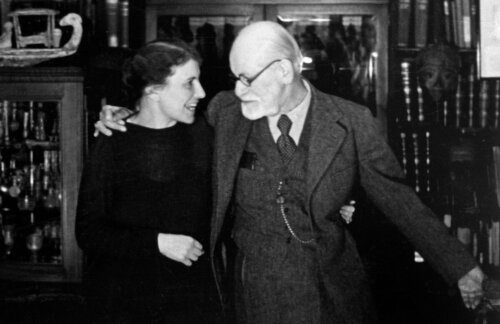Am I Doomed By My Family History?

There’s nothing worse than seeing yourself reflected in your parents’ flaws. In a way, it’s crazy to think how terrible it was to deal with those defects, and now, whether you like it or not, they’re part of you as well. Is this a part of something bigger, such as your family history?
The discomfort that this similarity causes is so great that, many times, there’s nothing else to do but deny it. This denial, as a result, leads us to place such flaws on others. In psychoanalytic terms, this is known as projection.
It’s quite common to repeat patterns of your family history in other relationships. What you learned as you grew up is instilled in you to this day. Realizing this may lead you to ask yourself: “Am I really doomed by my family history?” or “Will I make the same mistakes they made?”
Why is your family history important?
Your family history goes beyond genetic studies. You haven’t stopped learning since you came out of the womb. Actually, you had already learned a few things even before being born. It’s normal to imitate what you see every day. In the blink of an eye, you’re expressing yourself the way those around you do. You even learn to handle your emotions the way they do. In a way, those people become your role models.

In fact, there’s a stage of development in which children aren’t able to differentiate their own being from that of their caregivers. But in later stages, the child develops their “self” and understands that they’re independent of their attachment figures. This phase is particularly noticeable in adolescence when the individual intends to affirm their “self” and deny their family history.
Furthermore, these attachment figures aren’t only a model but are, in some way, the model. Children idealize their parents during childhood. So much so that, according to psychoanalytic theories, there’s an infatuation with parents, known as the Oedipus or Electra complexes.
Will I make the same mistakes as my family?
No, your family history doesn’t condemn you. If you want to be different from your family, you will be. All the patterns you’ve seen or learned are permeated in your personality. For that reason, you may sometimes recognize them in yourself. However, they’re not the only models you have. Your life experiences also provide structure to this entire framework!
The new relationships that you establish, whether they’re romantic, friendship, or fraternal, change all those patterns you carry inside.
In this sense, you may consider your family history to be a burden. Nonetheless, it’s also something precious that must prevail in order to maintain your generation. Believe it or not, it’s possible to perfect and improve your family history.
Anna Freud, daughter of famous psychiatrist Sigmund Freud, made fundamental contributions to psychiatry with her theories on defense mechanisms. As you can see, Anna Freud carried on with her father’s legacy and went a step further.

Improving your family history
As you can see, understanding your family history is important in order to fully comprehend the way your attachment figures have impacted you throughout the years. However, this doesn’t mean that you’re predetermined to repeat what your family members have done. Remember that you don’t need to repeat actions you don’t agree with. After all, you’re an individual.
One of the psychotherapies that focuses more on this perspective is family therapy, since it precisely tries to elucidate your current family position and even generations ago. This will allow the person to take an active role in those unconscious familiar patterns that keep repeating and causing pain.
Ultimately, you’re an heir to your family members. Both for the positive things and the legacy that makes you feel proud and for those that cause you discomfort. However, you must remember that it’s up to your very existence to improve this history and pass on the best part of yourself to the next generation.
This text is provided for informational purposes only and does not replace consultation with a professional. If in doubt, consult your specialist.








